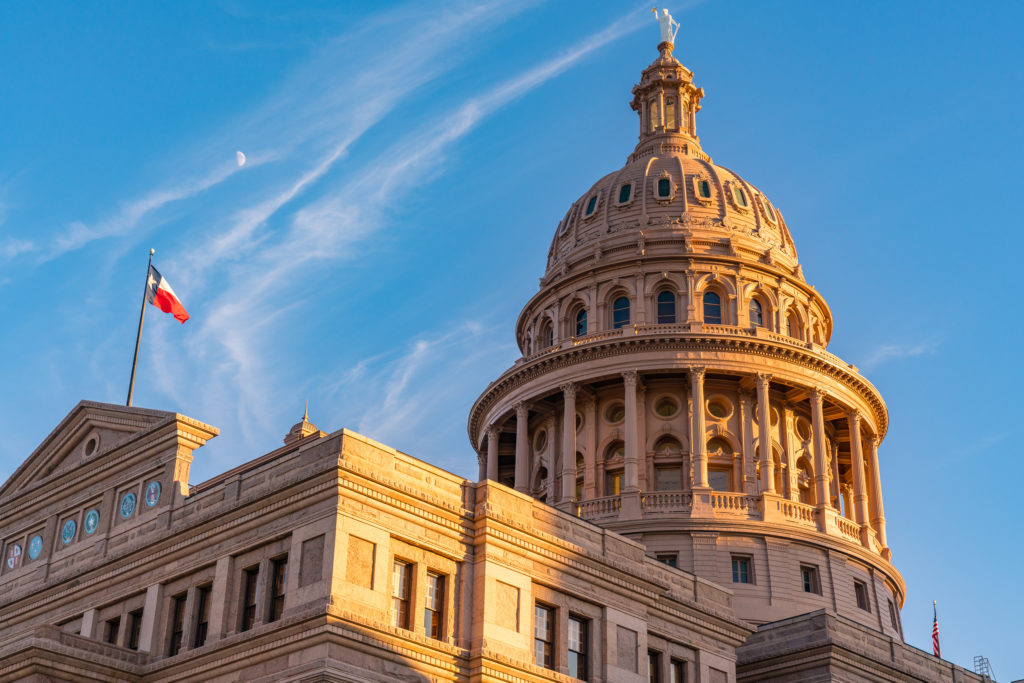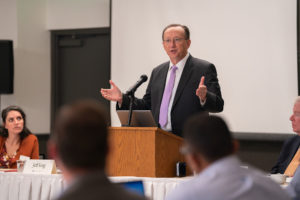
NEW ORLEANS (BP) – A Texas law banning abortions when a fetal heartbeat is detected, around six weeks of pregnancy, remains in effect after a New Orleans appeals court tossed it back to the state.
The Fifth U.S. Circuit Court of Appeals said Monday (Jan. 17) that the Texas State Supreme Court should decide whether the appeal by abortion providers can proceed.
“There is a possibility that federal courts could declare S.B. 8 (Texas Senate Bill 8) constitutionally infirm even though our conclusions might be based entirely on a faulty understanding of Texas law,” Judge Edith Hollan Jones wrote in the 2-1 majority decision. “To avert creating needless friction with a coequal sovereign in our federal system, this court reasonably seeks the Texas Supreme Court’s final word on the matter.”
The Texas law is unique in that it shields state officials from review, but empowers private citizens to sue anyone who “aids or abets” in an abortion procedure. The circuit court got the case in December after the U.S. Supreme Court blocked some points of the lawsuit, but said the challenge could proceed against a narrow set of state licensing officials who have the power to revoke licenses of doctors, nurses and pharmacists.
While the Texas law remains in limbo, Southern Baptist ethicist Chelsea Sobolik is awaiting the U.S. Supreme Court’s ruling on a Mississippi law that would limit abortions to 15 weeks of pregnancy. The Mississippi case is considered the most viable road to overturning Roe v. Wade.
“As the Texas Heartbeat bill continues to make its way through the courts, we are eagerly awaiting a decision in the monumental Dobbs case, that could overturn the disastrous precedents set in Roe and Casey,” said Sobolik, director of public policy for the Southern Baptist Ethics & Religious Liberty Commission. “We must work toward a day when the laws of our land promote the dignity and worth of the preborn, and abortion is unthinkable and unnecessary.”
In tossing the law back to the state, the circuit court said the state is better positioned to answer relevant questions of the case.
“We conclude that overarching questions of state law will be determinative for future proceedings in this federal suit and will materially affect the analysis of the plaintiffs’ claims against each of the Licensing Defendants,” Jones wrote. “Whether any of these Defendants has authority to enforce violations of S.B. 8 under relevant state law will be critical for potential issues of standing and ripeness.”
“The proper interpretation of state law will “bear on inquiries including (1) whether Plaintiffs’ claims against any of the Licensing officials can survive a motion for summary judgment; (2) whether Plaintiffs can make a ‘clear showing’ that any of the licensing officials can and will enforce or threaten to enforce S.B. 8, as is necessary to support injunctive relief; and (3) whether Plaintiffs can bear their burden to prove that any of the licensing officials can and will enforce or threaten to enforce S.B. 8.”
John Seago, legislative director for Texas Right to Life, applauds that the Texas law, while under review, has effectively ended abortions in the state since Sept. 1, 2021.
“While all of these complicated legal questions are untangled, we already every day have our victory,” the Texas Tribune quoted Seago. “Courts have allowed this law to stay in effect.”















